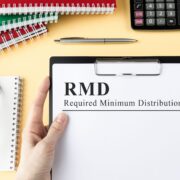A HEALTH SAVINGS account is one of the most powerful tax-advantaged savings tools, however many individuals overlook its advantages. Your contributions are tax-deductible (or pretax if through your company), the cash grows tax-deferred and it can be withdrawn tax-free for qualified medical costs at any time. You can utilize the HSA cash to pay your health insurance deductible, copayments, and other out-of-pocket medical expenses. Or you can keep the cash growing in the account for years and even use it to cover health care costs in retirement.
The tax law lets you make a one-time rollover from an IRA to an HSA, transforming the tax-deferred retirement savings into an account you can tap tax-free. But the law is limited, and you need to follow a specific procedure to prevent unexpected tax costs. Here’s what you require to know.
How to Roll Over Cash From an Individual Retirement Account to an HSA
Rolling over cash from an IRA can assist you to supercharge your HSA. It’s a method to take the cash that would have been taxable when withdrawn from the standard IRA and let you access it tax-free for eligible medical costs.
You can just make the rollover if you’re eligible to make new HSA contributions, which implies that you should have an HSA-eligible medical insurance policy with a deductible of at least $1,400 if you have self-only protection or $2,800 if you have family coverage in 2020 and 2021. The quantity you can roll over from the IRA is restricted to your optimum HSA contribution for the year, which is $3,550 if you have self-only protection or $7,100 for household protection in 2020 ($ 3,600 for self-only protection or $7,200 for household protection in 2021). If you’re 55 or older, you can contribute an additional $1,000 for the year.
The rollover just makes good sense with a standard Individual Retirement Account, which would otherwise be taxable, not a Roth Individual Retirement Account, which can currently be withdrawn tax-free.
Any quantity you roll over reduces your maximum HSA contribution limit for the year. For example, if you have self-only medical insurance in 2020 and you roll over $3,000 from an IRA, then you can just contribute $550 to the HSA for the year. You can just make an IRA-to-HSA rollover when in your lifetime, so you need to think carefully about the finest time to make this move.
Who Can Benefit one of the most From an IRA-to-HSA Rollover?
Because the rollover minimizes the quantity of brand-new contributions you can produce the year, it’s generally better if you can afford to contribute brand-new money to the HSA rather. That way, you’ll get a tax break for your contribution, in addition to developing tax-advantaged savings for future expenditures.
“I think it is much better to make new contributions so you can take the tax deduction rather than using the Individual Retirement Account to HSA rollover, however, if cash is tight or you have big expenses, the rollover is a great way to look after that circumstance,” states Roy Ramthun, president of HSA Consulting Providers.
Here are some situations where the rollover can be especially valuable:
Structure up your HSA balance, especially when you’re starting.” If you can not manage to make brand-new HSA contributions and need cash for certified expenditures immediately, then this financing approach might help,” states Rita Assaf, vice president of retail health savings accounts for Fidelity Investments. “This is especially handy in the very first year of owning an HSA and you require to gain access to funds for a qualified medical expense early in the year before you’ve accumulated much in your HSA.”
You’ll get back at more tax advantages if you keep the cash growing in them represent the future rather than utilizing it for current medical expenses. “Personally my favorite is to do the rollover at a very young age when they might not have the ability to make the contribution otherwise,” states Steven Hamilton, a registered representative who owns Hamilton Tax and Accounting in Grayslake, Illinois. “This allows the funds to grow in the most advantaged method possible.”

Offering a tax-free emergency fund. Individuals who have lost their jobs and need to gain access to emergency situations money can roll money from a standard Individual Retirement Account to an HSA and access it tax-free for out-of-pocket medical expenditures. They can also utilize the cash tax-free to pay their health insurance premiums if they’re getting unemployment benefits or if they continued their employer’s health insurance coverage on COBRA after losing their task.
“This may be most helpful for somebody who recently lost their task and is now on joblessness or dealing with COBRA premiums or big out-of-pocket expenses,” says Ramthun. “If cash is difficult to come by, transferring cash from an IRA to an HSA might be simply the ticket.”
Building healthcare cost savings as you get closer to retirement.HSAs can be much more valuable after age 65 when you can likewise withdraw cash tax-free to pay premiums for Medicare Part B, Part D, and Medicare Benefit strategies (however not Medigap). Likewise, HSAs don’t have needed minimum distributions, so you do not need to begin withdrawing cash from the account at age 72 like you would with a conventional IRA.
You can rollover more cash into the HSA if you’re 55 or older –– an extra $1,000 in catch-up contributions.
As you get closer to Medicare age, nevertheless, you need to be cautious with HSA rollovers. You can’t make brand-new contributions to an HSA –– or rollover cash from an IRA to an HSA –– after you enroll in Medicare. If you sign up for Medicare when you turn 65, your HSA contributions normally require to be prorated based on the number of months before you register in Medicare.
Some people who are still working for a big company at 65 delays registering for Medicare up until they’re older, so they can continue to add to an HSA. This is generally just an option if you have health insurance coverage from a current employer with 20 or more workers. But you require to be careful when you finally do register for Medicare after age 65 due to the fact that you’ll receive six months of retroactive Medicare coverage at that point –– and you can’t make HSA contributions for those months, either.
How to Roll Over Money From an Individual Retirement Account to an HSA
You require to be careful when you roll over the cash to avoid unforeseen tax costs. “The key is that the transfer must be made straight through a trustee-to-trustee transfer,” states Assaf. “You should not withdraw the cash from your IRA initially as that could result in a taxable occasion and charges.” Ask your HSA and Individual Retirement Account administrators for their procedure.
Given that it’s a unique rollover, you might not have the ability to do the transaction online, even if you have the HSA and the Individual Retirement Account with the very same administrator. This is the case with Fidelity, for instance. “You ought to call our HSA experts to deal with the transaction to ensure the Individual Retirement Account withdrawal isn’t dealt with as a taxable occasion which the cash rolled over into the HSA is treated as an HSA contribution,” states Assaf.
She states that some administrators may need a paper type and others might not. “The key is to guarantee the money rolled from the IRA is dealt with as an HSA contribution,” she says. “Some HSA administrators may send the trustee-to-trustee check to you, and in this circumstances, you will want to make certain that when you send out the check to your HSA administrator to include either a letter of guideline or deposit slip indicating that the check should be treated as an HSA contribution.”
Remember that both IRAs and HSAs are separately owned, even if you are wed. The IRA and the HSA need to have the same account owner in order to do the rollover, says Ramthun. “Unfortunately, you can’t draw from the Individual Retirement Account of one spouse and put it in the HSA of another spouse,” he states.























Comments